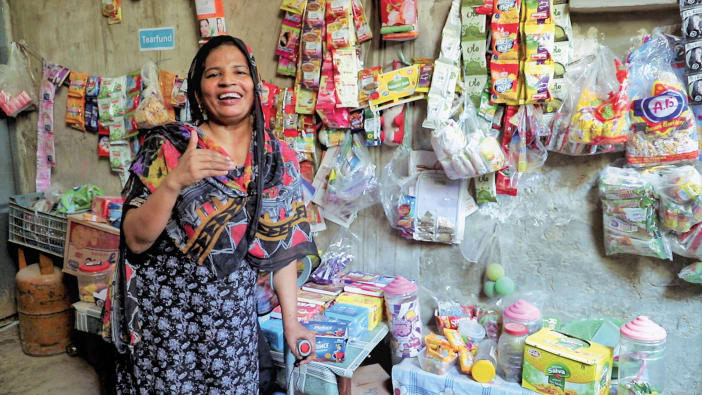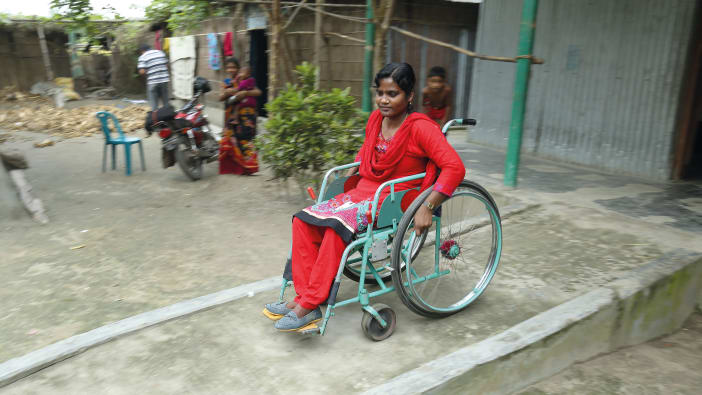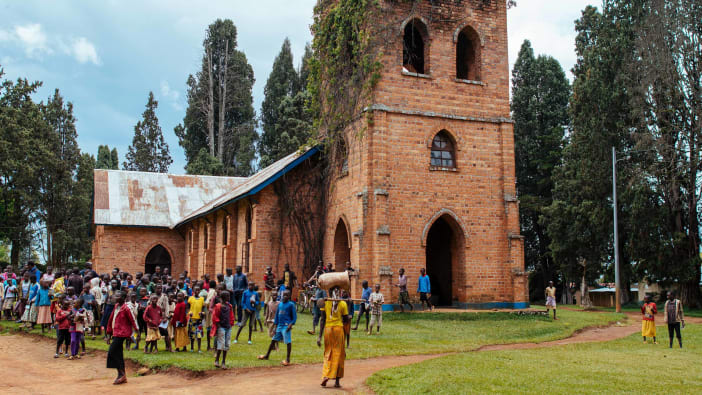Podcasts
How to make people feel welcome
A story of disability and inclusion in the Jordanian church
2022
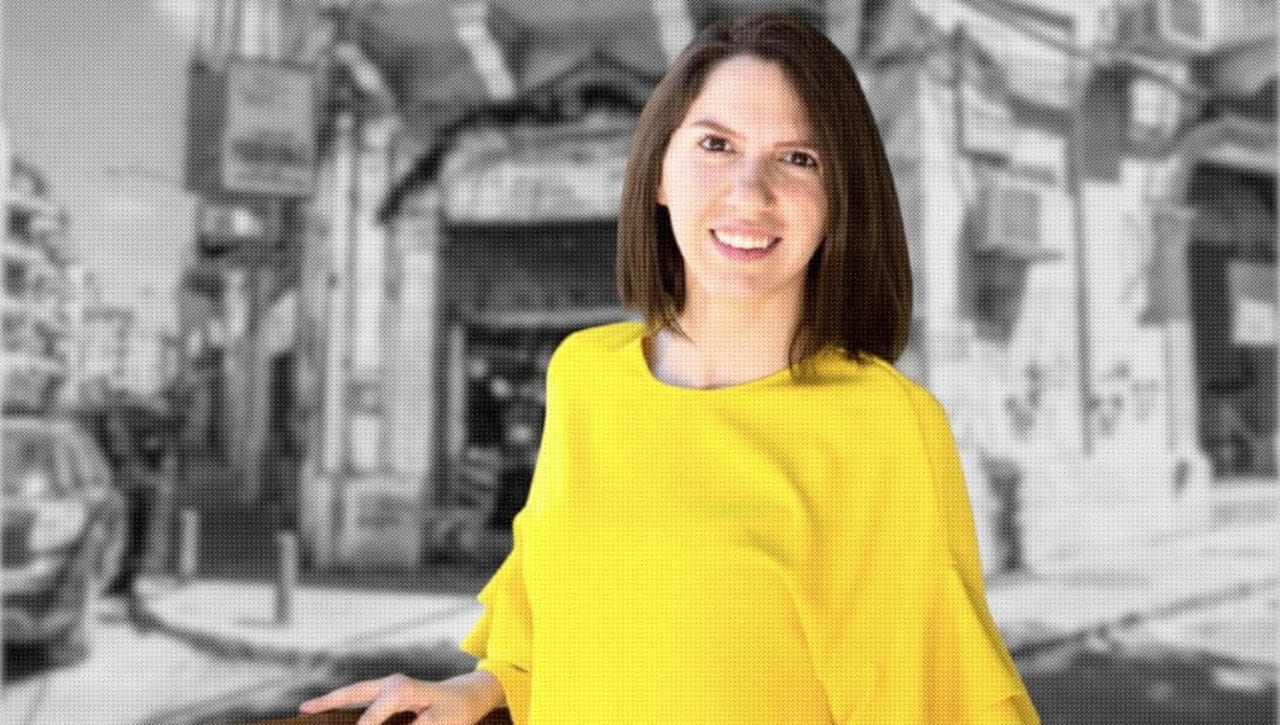
Total Time
Total Time
This show is made possible by you, our listeners. If you like what you hear and if you want to help us tell more stories and reach more people, then from only 2 USD a month, you can become a patron of the show. Just visit patreon.com/arukahnetwork .
Hello, I'm Jake Lloyd and welcome to How to build community, a podcast and a radio show brought to you by Tearfund's Footsteps magazine and Arukah Network. Why is it important to make people who are different to you feel welcome in your community? And what impact can it have when you do?
Muna AbuGhazaleh 0:44
Even if you don't see the impact, immediately be there and offer support. And that's a lesson I learned.
Jake Lloyd 0:53
So that's the voice of Muna AbuGhazaleh from Jordan in the Middle East. And it's a voice that doctors said would never be heard. Muna was born with various disabilities. That meant she would struggle to have a talk, walk or live an independent life. But through the radical love and support of her church and family, she's overcome these challenges. She is now a Communications Officer for Tearfund in the region. But we're talking to her today because she's also an expert in the theology of inclusion. Her master's dissertation from the University of Manchester in the UK is about the inclusion of people with physical and intellectual disabilities in the Jordanian church. It's a study of how things currently are and of how they could be better. And so in this episode you'll hear her story of how love, friendship and support have helped her achieve things she describes as miraculous. You'll find out why her church and the Jordanian people in general are known for their hospitality. You'll learn how the simple act of befriending people who are different to you can have a dramatic impact on their lives and on yours.
Jake Lloyd 2:14
And you'll find out what you can do to help make people with disabilities feel accepted and achieve their potential in your community. But I began by asking Muna to tell me a bit about her story.
Muna AbuGhazaleh 2:29
But I first was born. I was a hopeless case for the doctors. They said that know not even walk. She cannot serve herself. She cannot talk even. And. And that's a kind of hopelessness that came into the family at the beginning. But the church response to that was different. One of the friends of the family came to my mom, after 12 hours from my birth. And my mom, of course, was under trauma, you know, because the doctors didn't tell her anything when she was pregnant so she didn't know that there's something wrong. But she sensed that I wasn't moving normally of others. So that man came to his now pastor, Pastor George and he influenced our life a lot. And he said to my mom, accept her and love her. And I could testify today that we saw the church welcome and embrace me. And there were very supportive, not only to me, to the whole family. And that's what happened.
Jake Lloyd 3:46
Muna began to develop, grow and do things that the doctors said she would never do, like speak. And she attributes this to the love that she received from her family, but also, crucially, from her church.
Muna AbuGhazaleh 4:02
And having these people around me are giving me the power and the ability to realise the power of love in our lives, the presence of those abilities and other people as well.
Jake Lloyd 4:21
So what did this love look like in practice? She said that even though that was and still is, a lack of infrastructure for people with disabilities in her church and community, what was present in abundance was an attitude of friendship and support.
Muna AbuGhazaleh 4:39
They were there for me, for example, if I need something, I felt like someone who is there to help me. Given all the stories of any place, even when I was very young, I couldn't serve myself, when I got to the toilet, like, yes, I can ask for help whenever I want or when I need that. And not only that, they encourage, they support and they teach the most important is to treat me equally to others. I forgot that I have this disability at some points, you know, just be a part of it. And I was very active in ministry, and they opened that door and didn't feel like those barriers like that to let my disability to be a barrier there. They did not define me by the disability. They look at me as a person, you know. And that's most important is to value the human being because, who you know, who they are is and the characteristic of them. And they worked a lot up there and I can see it.
Jake Lloyd 5:55
So this is her personal experience growing up, but what about her studies of inclusion and disability? Firstly, what does inclusion mean to her?
Muna AbuGhazaleh 6:06
Basically, I answer, why is it by embracing our differences and welcoming them and accepting that we are different and I always reflect on the Bible, say there are different parts of the body but one body, and that means we cannot function even in church or community without each other. So it's more about accepting and embracing that we are different. And that's the thing of hospitality and welcoming. We are hospitable, which is also known as part of our culture, that we are always opened for others, especially in the villages. They are more like traditional areas. You will see that a lot of foreign people who came here as a visitor were amazed that some local people, they just opened their home and they start offering thanks. So they were like welcoming. No matter where you are coming from, no matter your background, you are different still. You are welcome and acceptance.
Jake Lloyd 7:18
And that reflects my own experiences of visiting the Middle East and of having friends and neighbours who are from that parts of the world. She then told me how her church has been showing this hospitality not just to people with disabilities, but also to people who have been displaced from conflicts in countries that neighbour Jordan.
Muna AbuGhazaleh 7:39
And our recent years talking, especially when the conflict started in Syria and Iraq, the church, the start to be more involved on the humanitarian activities. And we're almost engaged with our community on different levels and providing a lot of support, psychosocial support, awareness. And we provide, of course, with care and love. So we treat people with value, with dignity. And I would say with time we become more like friends.
Jake Lloyd 8:15
As a church continues its journey to becoming more inclusive. I asked Muna, what's the key to them making progress on this journey? Her answer was a simple one.
Muna AbuGhazaleh 8:26
The church started to be more inclusive first by loving and asking the question What? So having an open conference with each other, that helps a lot, you know. But at the same time, I would say maybe because we had kind of relationship that close to the time. So I'm able to express what I need, what is working for me, and what is not working.
Jake Lloyd 8:54
And what about the obstacles to making churches, communities and countries more inclusive? There are lots of ways to answer this question, but Mina decided to focus on one.
Muna AbuGhazaleh 9:06
I have dealt with a lot of persons with disabilities. A lot of them. I found that they focus a lot on their disability and they don't focus on other aspects of life. For example, I had the privilege that I was raised with non-disabled people and by having this atmosphere, I don't have to think a lot about my disability as a barrier. On the other hand, I saw people who were raised up at schools only for persons with disability and they moved university. And so they kept all this equality in saying that 'I'll be included here or not'.
Jake Lloyd 9:52
I found this really interesting. Through growing up, being loved and mixing with others, she started to focus more on her ability than her disability, whereas people with disabilities who are schooled separately saw themselves quite differently. What would she advise people who are listening to this to do to improve disability inclusion where they live?
Muna AbuGhazaleh 10:18
Start by being present and listen carefully to the words they are saying and do not be afraid to ask what their needs are. Do not assume things, and ask before you use, for example, anything practical, usually people see any person on a wheelchair, they assume that it is okay for me to go and help them directly. At the same time, you know, however, some persons with disability or wheelchair user wouldn't like that because they are feeling that's not valid then because some of them can and depend on. Yeah, they found a way to live it. So, educate. I would say it's important to be educated on having a disability, it's available online, you know, so try to educate yourself whenever you hear about someone, especially if you have a close person to you, you are, you know, that you suffer, for example, with the ADHD, try to read more about it, try to educate yourself and then ask to have an open and safe environment and to start always with defending that and accepting and also share that because I would that because friendship is a two way communication, you know, allow them to be your friends also, you know.
Jake Lloyd 11:51
And finally, Muna added this.
Muna AbuGhazaleh 11:53
Even if you don't see the impact, immediately be there and offer support. And that's a lesson I learned.
Jake Lloyd 12:04
So that was Muna AbuGhazaleh from Jordan in the Middle East, an expert in the theology of inclusion and disability. Muna has recently written an article for Footsteps magazine called 'Embracing difference'. That's as part of a wider edition on the topic of hospitality. You can read all Footsteps articles, including this one on the Tearfund Learn website that's learn.tearfund.org .
And that's almost it for this episode before we go. Don't forget you can catch up on previous episodes of How to build community on our SoundCloud page or in your podcast player. Just search 'How to build community'. You can learn more about Arukah on the website arukahnetwork.org . You can help support this show by making a small monthly donation at patreon.com/arukahnetwork and finally, if you have some feedback on this show or suggestions for future interviewees, then you can reach me via email [email protected] . That's it for this episode. Until next time. Bye for now.
Podcast highlights
-
From the moment Muna was born, her church made it very clear that she and her family were not alone. She says, ‘We saw the church welcoming and embracing me. They were really supportive. Not only to me but to the whole family. They didn’t define me by my disability; they looked at me as a person.’
Through growing up being loved and mixing with others, Muna was able to focus more on her ability than her disability. She began to develop, grow and do things that the doctors said she would never do.
Muna is currently a Communications Officer for Tearfund and an expert in the theology of inclusion. Her Masters Dissertation from the University of Manchester, UK, is about the inclusion of people with physical and intellectual disabilities in the Jordanian church.
From the moment Muna was born, her church made it very clear that she and her family were not alone. She says, ‘We saw the church welcoming and embracing me. They were really supportive. Not only to me but to the whole family. They didn’t define me by my disability; they looked at me as a person.’
Through growing up being loved and mixing with others, Muna was able to focus more on her ability than her disability. She began to develop, grow and do things that the doctors said she would never do.
Muna is currently a Communications Officer for Tearfund and an expert in the theology of inclusion. Her Masters Dissertation from the University of Manchester, UK, is about the inclusion of people with physical and intellectual disabilities in the Jordanian church.
-
‘I define inclusion as embracing our differences and welcoming people,’ says Muna. ‘I always reflect on the Bible saying we are different parts of the body but one body (1 Corinthians 12:12-27), and that means we cannot function in church or community without each other. So it is about accepting and embracing that we are different. And that is the thing of hospitality and welcoming. No matter where you are coming from and your background, still you are welcomed and accepted.’
The Jordanian church is currently supporting many refugees from other countries in the region. Muna says, ‘The church treats people with value and dignity and, with time, we become friends.’
‘I define inclusion as embracing our differences and welcoming people,’ says Muna. ‘I always reflect on the Bible saying we are different parts of the body but one body (1 Corinthians 12:12-27), and that means we cannot function in church or community without each other. So it is about accepting and embracing that we are different. And that is the thing of hospitality and welcoming. No matter where you are coming from and your background, still you are welcomed and accepted.’
The Jordanian church is currently supporting many refugees from other countries in the region. Muna says, ‘The church treats people with value and dignity and, with time, we become friends.’
-
‘Start by being present and listen carefully to the words they are saying,’ says Muna. ‘Do not be afraid to ask what their needs are.
‘Ask before you offer help. For example, if people see someone in a wheelchair, they think it is fine to go and help them directly by pushing the wheelchair etc. However, some wheelchair users wouldn’t like that because they are feeling that you are not valuing them, because some of them can move independently and have found a way to live with their disability.
‘It is important to learn how to respond to people with disabilities - there is a lot of information online. Try to read more about their needs.
‘Start always with friendship and acceptance. Even if you don’t see the impact immediately, be there and offer support.’
‘Start by being present and listen carefully to the words they are saying,’ says Muna. ‘Do not be afraid to ask what their needs are.
‘Ask before you offer help. For example, if people see someone in a wheelchair, they think it is fine to go and help them directly by pushing the wheelchair etc. However, some wheelchair users wouldn’t like that because they are feeling that you are not valuing them, because some of them can move independently and have found a way to live with their disability.
‘It is important to learn how to respond to people with disabilities - there is a lot of information online. Try to read more about their needs.
‘Start always with friendship and acceptance. Even if you don’t see the impact immediately, be there and offer support.’
About this podcast
How to build community is a podcast and radio show from Arukah Network and Tearfund’s Footsteps magazine. The podcast gives people the opportunity to inspire and motivate others by talking about their community projects and ideas.
Please get in touch if you have any ideas for future podcast episodes.
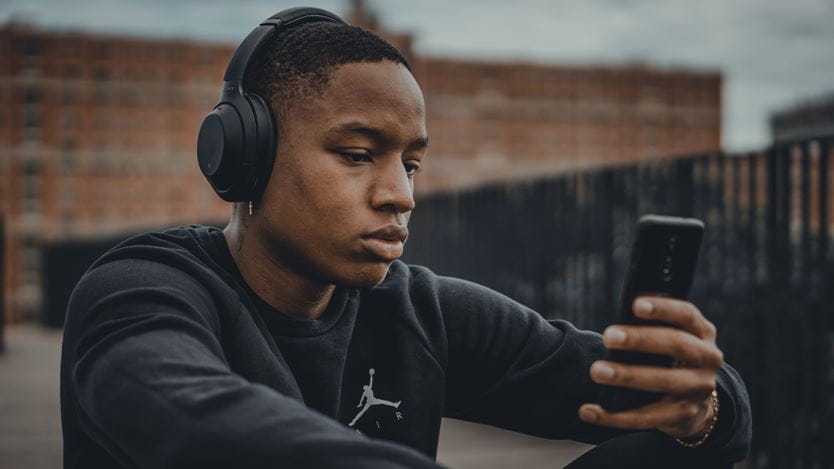
Never miss an episode!
Subscribe to Tearfund Learn emails and be the first to hear about our latest podcasts and publications.
Sign upSimilarly Tagged Content
Share this resource
If you found this resource useful, please share it with others so they can benefit too.

Get our email updates
Be the first to hear about our latest learning and resources
Sign up now - Get our email updates



